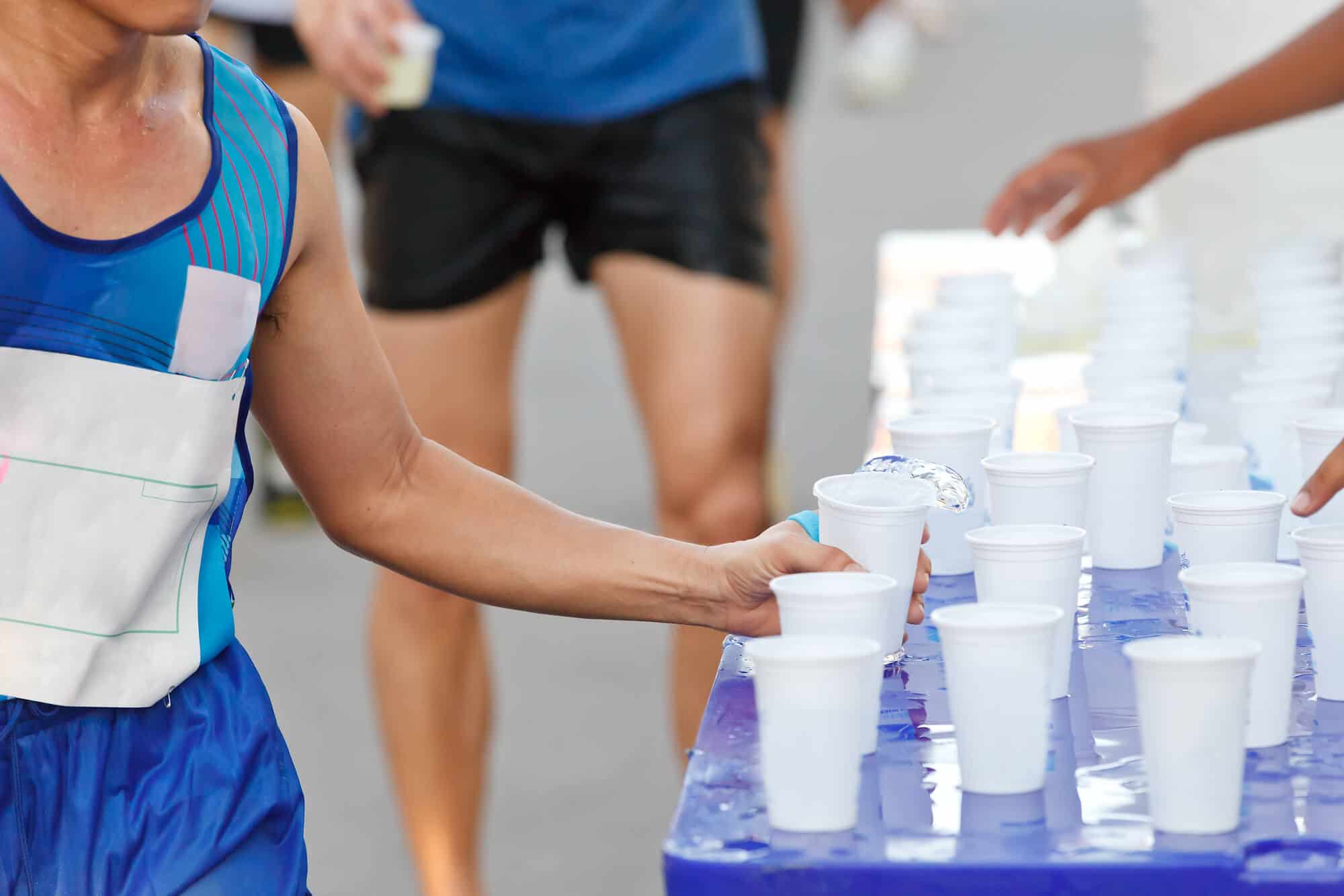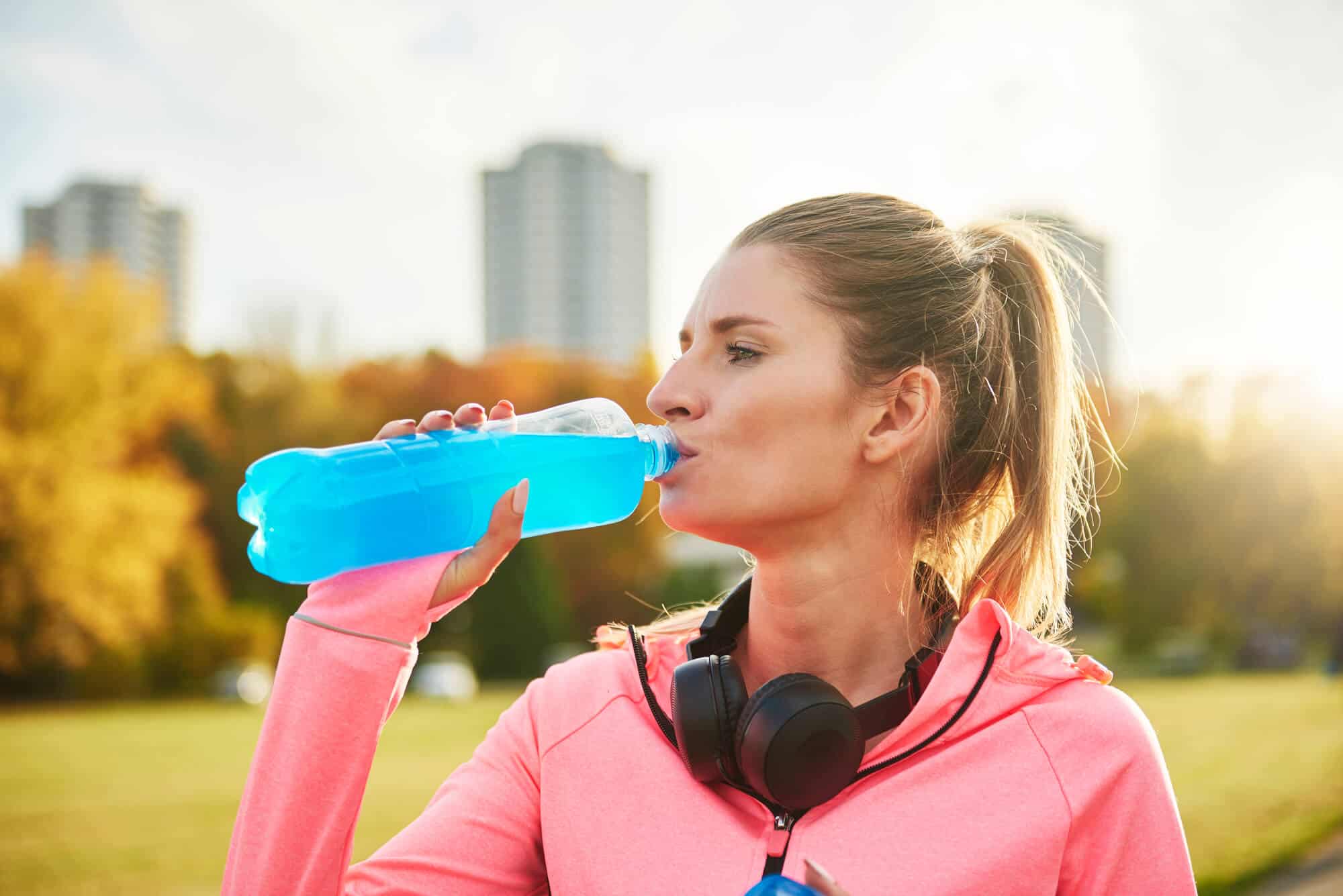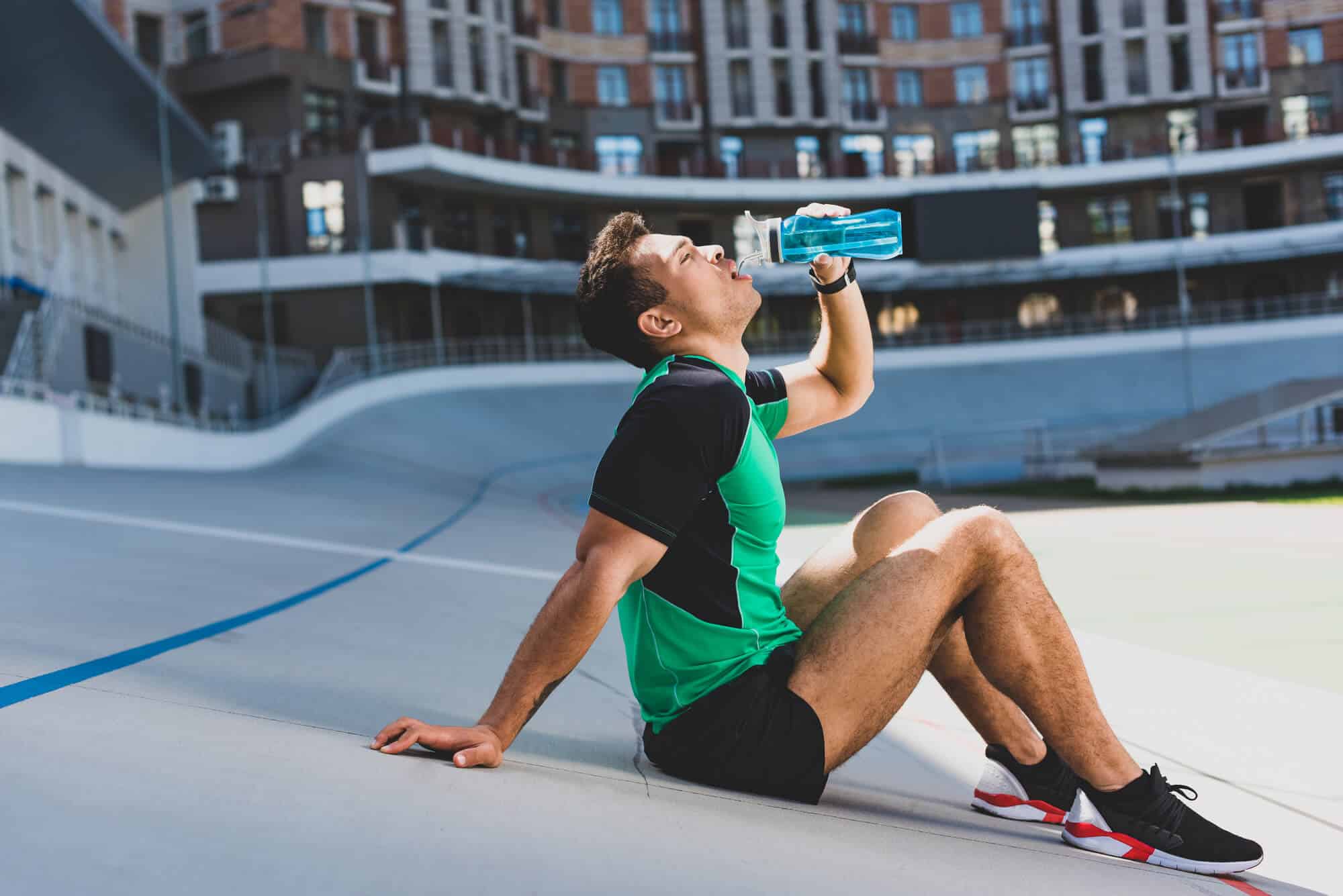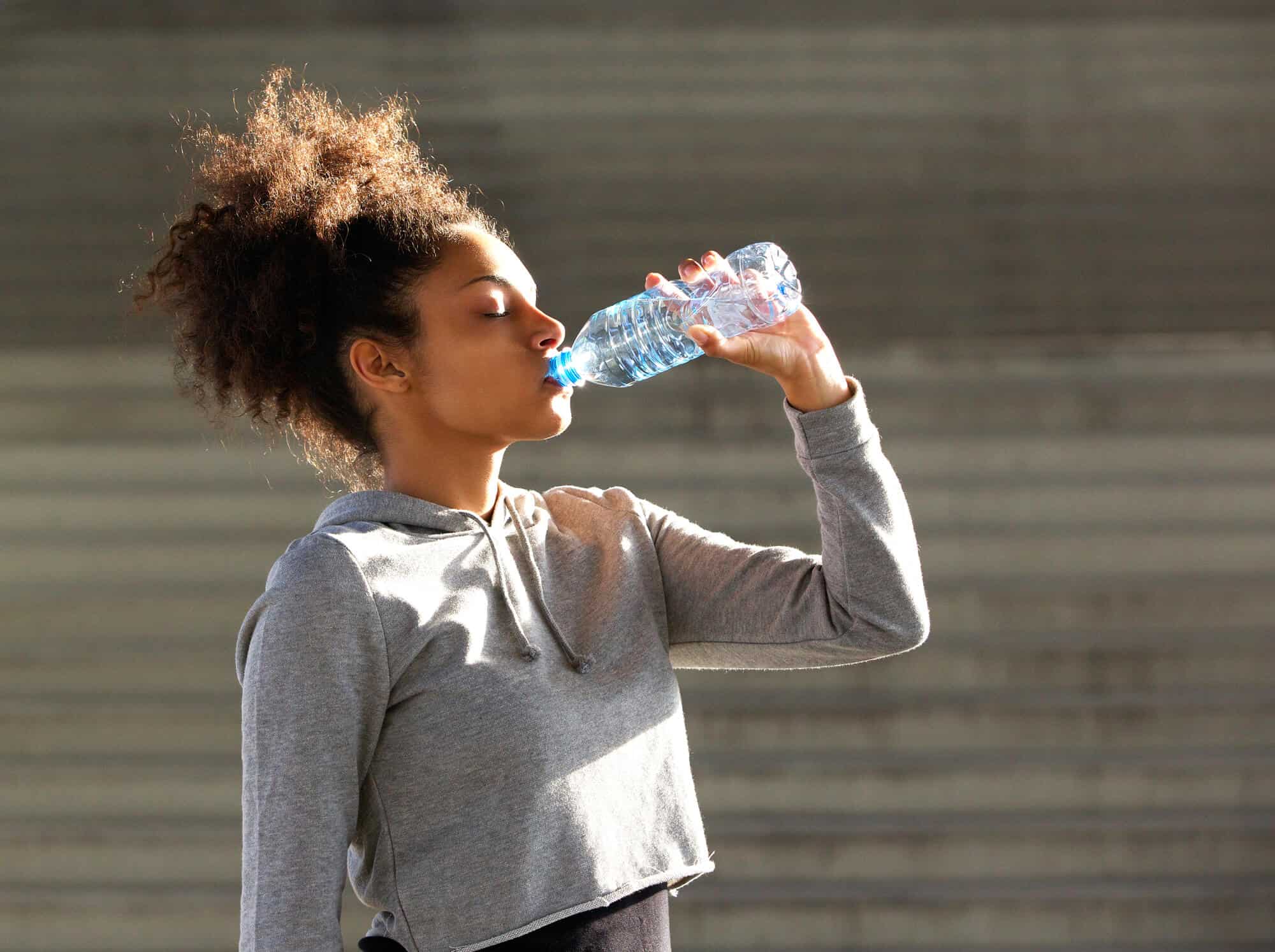Water is an essential part of our lives. Whether we like it or not, we all know that you have to drink water throughout the day to stay healthy.
This is even more true for athletes like marathon runners. They need to make up for any water they lose while running.
Who can benefit from this:
- People who are starting marathon training
- Runners who are headed into a big race
Conversely, who wouldn’t benefit from this:
- People with pre-exisitng medical conditions
- People that walk a marathon instead of run
Many runners don’t know how much water to drink before a marathon. Well, if that’s what you’re after, you’ve come to the right place.
Let’s take a look at how much water you need and what factors affect it.
Average Hydration Needs
Since humans consist of about 70% water, it should come as no surprise that we need to drink plenty of it. The average person needs about 12-13 cups of water a day to maintain a healthy life.
Depending on a few factors, you’ll need different levels of hydration throughout the day. Some of these factors include:
Age and Weight
Your age and weight have a major impact on how much water you should be drinking.
As you grow older, your body loses some of its ability to retain water. This means that the older you get, the more water you’ll have to drink every day.
Weight can also significantly change water intake. The heavier you are, the more effort you need to exert to move around. This will lead to an increase in sweating, which means you need to drink more water.
How Much You Sweat
One of the most important factors that affect water intake is sweating. Everyone sweats at a different rate. Depending on your weight, or even the weather, how much you sweat can vary greatly.
On average, an athlete sweats about 0.5 to 3 liters per hour. This changes with activity level.
To make up for the water loss, you need to drink about four extra cups for every liter of sweat you make.
For example, if you sweat a liter every hour, you need to drink four cups every hour to balance out your water loss. You add this to your base daily intake of water, which rounds up to about 16-17 during the day.
This may seem like a straightforward substitution, but it can be tricky. It’s difficult to know how much you’re sweating every hour, especially since the number isn’t constant.
Still, what you can do is calculate an average while you’re working out. It can be a little hard to see how much you sweat, so you’ll need to calculate your sweat rate by weight.
Physical Condition
Preparing for a marathon is not an easy task. It’s tough and can take a while. The average marathon training program is about 16 to 20 weeks long.
You start off slow running short distances, then you gradually increase the intensity. This build-up is crucial to keep you healthy. If you push yourself too hard, you could end up hurting yourself.
During this time, your body will go through a few changes. In the beginning, you’ll see that your sweat rate increases dramatically. You’ll find that you’re soaked at the end of every training session.
This is completely normal, your body is adjusting to the new activity level. However, as time goes on and you build up your stamina, your sweat rate will decrease gradually.
Water Intake Throughout a Marathon

The great thing about our bodies is that they can retain water. That means when you drink water, you store some of it in your cells. This is why you don’t need to drink water constantly.
Your objective is to drink water before your body’s reserves run out. To do this, you need to drink before, during, and after a marathon.
Hydration: How much water to drink before a marathon
The trick to good hydration before a marathon is to start early. Most people start the morning of the race, but you can even start a couple of days before the run.
During the days before a marathon, make sure you’re well hydrated. This will go a long way in ensuring you’re hydrated on the day of the race.
Since marathons start pretty early in the morning, it doesn’t leave much time for prep. Unfortunately, this means that you have to wake up early, at least 2-3 hours before the race.
You’ll want to drink about two cups of water during this period. It’s best if you spread the two cups over the 2-3 hour period, instead of drinking them right before the race.
Hydration During a Marathon
The average person can run a marathon in about four and a half hours. This is a long time to go without water, especially since you’ll be sweating in the sun. That means you need to hydrate while you’re running.
Most people need about a cup of water every 20 minutes while running a marathon. Depending on how much you sweat, this number will change a little.
If you don’t sweat much, then you can drink as little as half a cup of water every 30 minutes.
This can be a little tricky to judge while running the marathon. So, as a general rule, you want to ensure that your mouth doesn’t dry out.
For most people, this means taking a sip of water every few minutes. It’s not a good idea to drink a lot of water all at once while running. It could weigh you down and cause early fatigue.
Hydration After a Marathon
The most common mistake that marathon runners make after a run is drinking a lot of water. Runners feel thirsty, so they assume they need to make up for the water loss during the run.
However, if you hydrate during the race, this is not the case. As long as you keep your water levels up during the run, you don’t need much water afterward.
All you need is about one or two cups of water. Once your body cools down, the thirst should go away.
What Happens if You Don’t Drink Enough Water?
If you’re running at a fast pace during a marathon, it can be difficult to maintain your water levels. You sweat much more and you make fewer water breaks. So, it’s normal for athletes to be a little dehydrated.
This isn’t much of an issue for most people. However, dehydration for long periods can have many adverse effects. Some of these drawbacks include:
- Dizziness
- Fatigue
- Muscle weakness
- Headaches
- Kidney pain
While these symptoms can occur, they’re unlikely. Unless you don’t hydrate at all during the race, you should be good.
However, if you do experience some of these symptoms, it’s important you drink plenty of fluids. The symptoms should go away after a couple of minutes. If they persist for more than an hour, you may want to contact your doctor.
How to Hydrate?
Now that you know how important it is you stay hydrated, we can talk about the best ways to hydrate.
Many people think that to hydrate means to drink water, but that’s only a part of it. Hydration includes replacing water and minerals that you lose when you exercise.
Replacing Minerals

Replacing water in your body is the easiest step of hydration. It’s as simple as drinking a glass of water. However, your sweat consists of much more than water.
An average healthy person’s sweat contains potassium, calcium, and magnesium. That’s what gives your sweat its salty taste.
Your body needs these minerals to carry out various functions. So, if you sweat too much, you can change the balance of these minerals in your body.
While some water sources contain these minerals, most of them don’t. This means you need to get them from a different source.
Normally, you’d get potassium, calcium, and magnesium from food. However, it takes time for your body to digest the food into the minerals you need.
Instead, you can try a sports drink. These drinks are specifically for athletes. They contain all the minerals you need after a long session of exercise. Moreover, because they come in liquid form, they don’t take time to digest.
Sources of Hydration
When it comes to hydration, water, and sports drinks aren’t the only options. There are plenty of other sources of water and minerals.
The best alternative to water and sports drinks is milk. Milk has high water content and all the minerals you need.
However, if milk isn’t your favorite drink, you can also drink juice, coffee, or tea. Caffeinated drinks can both hydrate you and give you a nice energy boost.
Try to avoid any drinks that have high sugar content. Sugar can affect the mineral balance in your body if you’re dehydrated. So, if you take your coffee with sugar, it might not be the best idea.
Can You Drink Too Much Water?
How Much Water to Drink Before a Marathon? After all this talk about hydration, you might be wondering if you can drink too much water.
Well, the answer to that question is yes. Even though most runners are slightly dehydrated, they can still drink too much water.
What Is Too Much Water?
Your body is constantly losing water in some way or another. To keep up with this, you need to drink water throughout the day. However, we can only hold so much water in our system.
The easiest way to tell if you drank too much water is through the color of your urine. A healthy urine sample should be a pale yellow. If your urine is clear, then that’s a sign of overhydration.
Since you urinate any extra water, overhydration isn’t usually a major issue. You only feel the effects if you are constantly over-hydrated. This can happen if you drink large amounts of water in a single serving.
Drawbacks of Drinking Too Much Water

People make the mistake of drinking too much water at once. While not life-threatening, this can still have a few drawbacks.
- Stomach problems
- Kidney problems
- Hyponatremia
The first sign of overhydration is a bloated stomach. All the extra liquid moving around in the stomach can irritate the stomach lining. This can be uncomfortable and lasts a while.
Your kidneys can also suffer if you drink too much water. Since your kidneys have to process all the extra water, they can end up overworked. In addition, if you don’t empty your bladder often, you might cause a build-up of urine in the kidneys.
Still, the most dangerous drawback of drinking too much water is hyponatremia. Too much water can change the balance of ions in your body. This could lead to nausea or worse seizures.
Getting any of these symptoms during a race can be a health risk. To avoid this, it’s better that you drink a few sips of water every hour or so.
Wrapping Up
Proper hydration is crucial to any athlete. This is especially important to marathon runners that spend hours on a track.
You need to know how much water to drink before a marathon to avoid dehydration. This will depend on a few factors, including age and physical condition.

